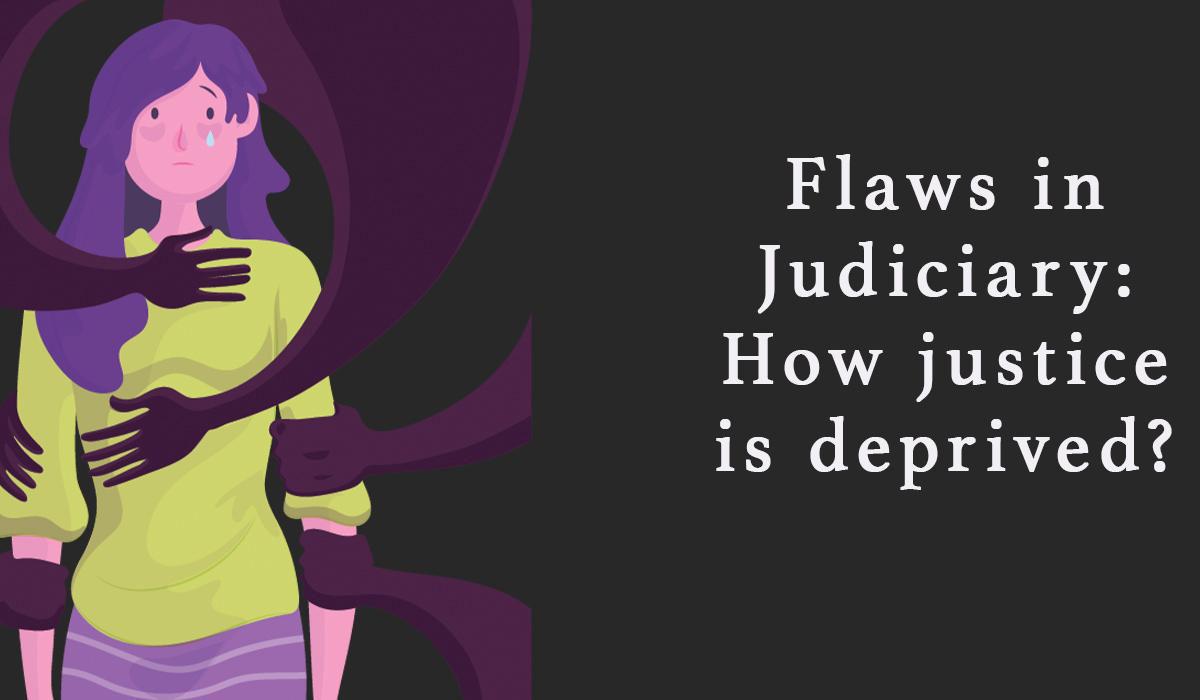Law only acts when a complaint is reported, but in most of the cases an agreement is reached within the vicinity of the household.
Flaws in Judiciary: How justice is deprived?
1200+ in the last six months at the rate of 7 per day.
420 alone in the last sixty days.
No, it’s not the number of deaths from Coronavirus. It’s the number of reported cases of sexual assault in our country. The number is bewildering, almost unbelievable. The number that upsets our rhetoric of bravery and peace. It’s not a hard pill to accept that the reality of women safety, minor protection in our country is horrendous.
Let’s breakdown the aspects of sexual assault, why the cases are so prevalent? There are several facets of the cases from the flawed judiciary to societal structure. Sex is seen as a taboo in our society, it’s not discussed to a necessary extent. Among teenagers, it’s mostly glorified as a sort of achievement. We can derive rape as an outcome of the oppression and lack of awareness. The concept of rape is hollow and misinterpreted among the general population. What most people think of rape is the act of sexual penetration against the will of women, perpetrated by strangers in dark alleys or dense bushes. This is no doubt a vague impression. The definition, extent and facts are way broader than we realise.
Legal loopholes
The last few amendments of the law against the rape have given few hints of optimism among the people. Now, the rape is defined as ‘Sexual relations with women without her consent and with a girl under the age of 18 with her consent'. The term ‘sexual relations' is broadened to encompass sexual penetration along with oral intercourse and penetration with objects. This surely looks better than before but still fails to mention the subtle cases of rape like improper touching, sexual display forced physical acts and others. These acts are equally repulsive but lack of acknowledgement from the law only redeems silence. Another thing we can detect is the notion of patriarchy. The law against the assault primarily victimizes women. “The reasoning that men are powerful enough to resist sexual violence against them or are totally immune to it has unfortunately found its way to our law. These impressions deny justice to the victims regardless of their sexual orientation.” Says Jayanti Joshi, a keen social worker.
The statute of duration to report the case of rape was increased from ludicrous 35 days to one year. This is still inefficient and doesn’t meet international standards. If a case of rape involves a minor, too young to understand the barbarism of act, it may take years for them to finally realise it. The justice will be delayed but shouldn’t ever be denied. The guilty shouldn’t be exempt from punishment just because the act happened years ago.
The punishment against the crime counts on the age of the victim; life imprisonment for the victim of age less than 10 and above 70, 7-10 years of prison if the victim is from age 18-70. The gravity of the crime is oftentimes plainly ignored. The judges are given enough leverage on this matter so more atrocious crime may not fully get the punishment it deserves.
One thing in which our judiciary miserably fails is to give justice to victims of decade long Maoists insurgency. Rape was one crime more prevalent during the time of war and both opposing sides were accused on the matter. The recent case that surfaced was of Fulmati Nyaya who was raped, tortured and forced into labour in 2002. For year’s she couldn’t file a complaint because of the limitations of duration to file a rape case. Because of this loophole, cases were under-reported or totally brushed off. War crimes shouldn’t have a statute of limitations. The circumstances during the war don’t favour the immediate justice so, the victim should have the right to report the crime later on.
Law only acts when a complaint is reported, but in most of the cases an agreement is reached within the vicinity of the household. This might sound wise if the victim is fairly compensated. But this is our society we are talking about, a society that still has to recover from medieval practices and deep-rooted superstitions. A victim of a so-called lower caste, poor or illiterate aren’t guaranteed compensation. There is also this outrageous practice of marrying a victim to its perpetrator. There is a need for intervention from the law in these matters. The mediation should only be reached in court or related government bodies not in the open air. A complaint once filed must reach a final decision from related bodies before the withdrawal.
“The victims won’t succumb under the pressure if the laws are strong. They will only be given the justice they rightfully deserve.”, explains Arya Singh from Trilegal Nepal.
